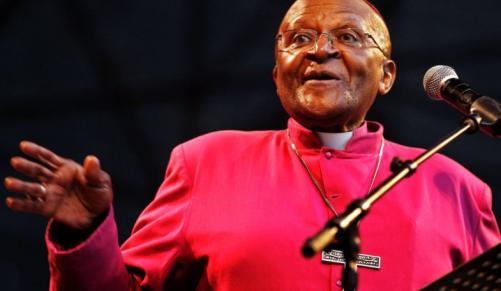To fully appreciate the concept of assisted dying among African cultures requires that we decolonise death and dying, writes Sibonginkosi Mazibuko.

Johannesburg – The burning question of euthanasia (assisted dying) has recently been in the spotlight again, but sadly the whole debate appears to ignore other cultural perspectives.
The concept of assisted dying is not really foreign to other cultures. To fully appreciate its essence among the cultures of African people – in South Africa in particular – requires that we decolonise death and dying.
Colonial teachings on death and dying revolve around the concepts of heaven and hell. Heaven and hell represent the Western epistemology of understanding dying and death.
The pain the sick endure is understood through Western thinking while ignoring and undermining other forms of knowledge.
Some African people believe that all dead people join their ancestors. It is believed that dead people are actually not dead. They live in another world where they give guidance to those still living on Earth.
However, access and acceptance in the place of the dead are not automatic. They are dependent upon one’s conduct on Earth. People who behaved in unacceptable ways, especially murderers and witches, are believed to struggle to meet their ancestors and, prior to confessing to their evil deeds, to find dying difficult. It’s submitted that such people suffer grave illness and pain to the extent that they wish for an early death to relieve the pain. Which is where the question of euthanasia comes in. There is a school of thought agitating for the laws of the country to be altered to allow such people to be assisted to reach death.
Their families must make the decision, with the elders calling the meeting to reach consensus. Then the sick can be assisted to die peacefully without euthanasing them at all.
It is also believed in some cultures that people who struggle to die are likely to be murderers and witches. The evil wishes and thoughts we hold for others also qualify us as such. Betraying your brethren to your enemies is an act as wicked as murder and witchcraft. The majority of traitors live with shame all their lives because they are rewarded by the enemy for betraying their own. But the wealth they get to “enjoy” grates on their consciences. They appear to be happy but they are bleeding from shame on the inside for evil acts they find it difficult to confess to. So they live heavily conflicted lives.
Think of a traitor whose hands are bloodied because they sold out their own to the enemy. They live luxuriously at the expense of others. In South Africa, for example, people betrayed the liberation struggle in many ways. They accepted money from those that killed their own. That is why it’s believed the ancestors should be angry with these people.
To be freed from the burden of a heavy conscience requires that the person confesses and sometimes this will involve physical cleansing. Otherwise these people die long and painful deaths. No medicine works until they confess to their evil deeds.
Such people usually have difficulties when they are supposed to die. Some African cultures resolve this by asking the person to confess. During the confession, only the close family is allowed near the dying person to hear their secrets. The dying person may also request that people they wronged be called in so they can apologise to them. If they refuse, they become the guilty ones while the evil-doer departs with a clean conscience.
At another level, the dying person may be required to apologise to the ancestors for actions that may have been unacceptable to the dead. The family slaughter an animal to appease the ancestors and the elders conduct the ceremony and plead for forgiveness of the sick person, requesting that the ancestors allow the person to join them in the after-death world. Usually the sick person does not live another day.
For me, then, such conversations’ with death assist a sick person to die peacefully. There is no poisoning. The dying individual only has to confess to their evil deeds to depart with a clean conscience. Those left behind are required to let go of any wrongdoing the dying person committed in their lives.
In these terms, euthanasia is not necessarily a strange thing. It may be that we only need to embrace our cultures and bring back good practices and beliefs colonialism made us discard. In fact, many African people still practise them.
The African version of assisted death ensures the individual who lived wickedly is forgiven and can join their ancestors. Otherwise it’s believed they become bad spirits wandering on Earth without a place to rest. We call them ghosts.
Complete Article HERE!
